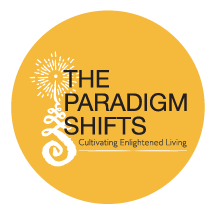Xenophobia is defined at Wikipedia as "an unreasonable fear or hatred of foreigners or strangers, or of that which is foreign or strange".
My sense is that we are all xenophobic. We are all wary of new people, new things and ideas that, though proven by research to be effective means to improve bottom lines, financially and in every other aspect of life, we are too afraid to let go of our inflexibility and invulnerability to try something new.
It’s not uncommon for those who experience xenophobia to fear losing their roles, their positions and identity. We can be suspicious of other people’s activities and sometime be aggressive; desiring the elimination of the other’s presence in order to secure a presumed state of stability. What this does is supports a foundation built on worry and anxiety, which is an unstable platform upon which to build a survival strategy; it will topple under the slightest tremor.
Even with global economic and environmental instability pressing down on us to face what could be the extinction of our economic system or worse yet the extinction of our species, we are too terrified to look beyond our current context and explore those means that will create a paradigm shift. Xenophobia sets off denial as a way of avoiding what we don’t want to face “ it’s too scary!
It doesn’t even have to be about the global situations; it could be about bringing more effective processes into management and leadership roles. It could be about recognizing that it’s intimidating to be human in a work environment that isn’t tolerant of its human resource because we are sometime unpredictable, uncontrollable and fallible. It could be about entering into a dialog with yourself about what you are afraid of and how you are being at work in response to that fear. These dialogs reveal many interesting patterns of being that aren’t pathological; they are just ways of being that we’ve not been allowed to be curious about.
We are afraid of being afraid. Under the scrutiny of others, we could be found out as weaker and inadequate, that we are replaceable, or that we have no value what’s so ever. We are all afraid of being found out that we are not who we pretend to be. When faced with strangers or new people, we are fearful that they may be able to see what we’ve been hiding all along.
Spirituality is a frightening concept to many. Though sought after by millions, it scares the bejesus out of us. We don’t understand it, it makes no sense to put trust and faith in an unseen source, and yet people find comfort when engaged in practices that support spiritual development. It makes people feel better about themselves and others, the energy shifts “ there’s a calmness and peace in the environment and people are more product and happier when cultivating spiritual awareness. Why not invite this into the workplace?
Any phobia starts with a seed of thought that we make believe is real. We cannot overcome any fear until we distinguish the underlying belief we chose to be true. 85% of our fears are irrational and have no evidence to support them in the current paradigm. Most of these fears we took on in our childhood years and never stopped to assess the degree of truth upon which they were based. Our cultures, religions and economic institutions, in general, support the fear-based reality within which we operate and stifle any development that will threaten their position. I believe we are encouraged to be xenophobic. Alternatives to western medicines, fossil fuels, capitalism and fundamental religions, regardless of decades of research that point to the value they bring, are feared and made to look as though they are serious threats to our well-being.
Within our business environments how is xenophobia encouraged? Your institution may be a rare example of being free from such a mechanism; however, the truth is that the barbs of fear that we carry are so unconscious that we don’t know that we don’t know about the underlying fears from which we operate. Only through inquiry and direct confrontation with ourselves are we able to unconceal fearful patterns of being that originated from a single moment that birthed a single thought that started the ball rolling.
All organizational dysfunctions originate from one human being whose fear-based choices permeate throughout the whole. Fear is highly contagious; the remedy is alternative in nature, for as Einstein said, you can’t to solve the problem with the kind of thinking that created it. Fearful thinking begets fearful solutions.
How do we be with our fears in a way that allows them to be recognized for what they are? We can’t overcome our fears until we discover the underlying beliefs that trigger them in the first place. As long as we continue to pretend that we are not afraid and there’s nothing to be afraid of in the first place, we’ll never stop having to pretend.
What’s possible through this exploration is that we recover truths and clarify realities by which to re-choose what we choose to believe in and act from. Without such an expedition, our business environment will have no way to recover itself and be optimal in its ability to create and produce from a highly functional perspective “ something untenable in a xenophobic environment. When we realize that we are all unique to each other and that our ways of being and the ideas and gifts we bring to the table are reflections of a larger, more expansive source of these ideas, we are then empowered to be curious, willingly mining for the nuggets of gold that support true innovation and exponentially empowers the essential paradigm shift.
